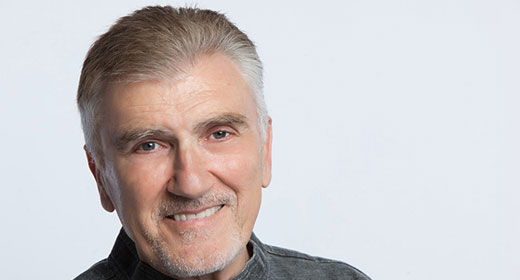by: Paige Bennett: Researchers at Bemp Research Corp. have developed a lithium-sulfur battery that is more cost-effective, has a higher performance
 and is more recyclable than lithium-ion batteries thanks to a helpful material: hemp.
and is more recyclable than lithium-ion batteries thanks to a helpful material: hemp.
The company uses carbonized hemp rather than heavy metals like cobalt or nickel, making batteries that are lightweight and durable. While many researchers globally have been looking into ways to use graphene for better EV batteries, it is still an expensive material that cannot be scaled up for mass production.
“Hemp is a better, lower-cost solution. Hemp’s durability can help the cathode withstand hundreds of cycles of contraction and expansion,” Son Nguyen, founder of Bemp Research, told EnergyTech. “Hemp’s porous structure can help ‘trap’ the polysulfides from shuttling to the anode.”
The use of hemp also means these batteries could have a smaller impact on the environment. Professors at Northwestern University, who are not involved with Bemp Research, found that cobalt mining in particular has harsh consequences on communities, including increased violence, food and water insecurity and health challenges. The working conditions are often unethical and dangerous for workers. Mining for heavy metals, including cobalt, can also pollute soil, water and air, contaminate food supplies and increase risk of respiratory and reproductive health issues.
Bemp Research said its LiS/B4C-hemp batteries — B4C-hemp meaning a boron carbide made of hemp — require only one heavy metal, lithium. This also means the batteries are far easier to recycle than lithium-ion batteries.
“Sulfur is very abundant. Boron is also relatively abundant, with the biggest boron mine being in California,” Nguyen said. “We also have a strategic partnership with Delta Agriculture, the biggest hemp producer in the USA. Delta Agriculture highlights that hemp is a legal crop that requires little water, no pesticides, and is better at carbon sequestration than trees.”
The company explained in the interview with EnergyTech that using an abundant crop like hemp and other materials that are more widely available than heavy metals can alleviate supply chain issues, lead to less costly manufacturing and create batteries that are safer in the event that they are damaged. The LiS/B4C-hemp battery is less likely to combust if damaged compared to a lithium-ion battery, making it a safer alternative, according to Nguyen.
Under tests, the batteries show they can be charged in just 20 minutes and are expected to last 100,000 miles with fast charging or more with slow charging. The team hopes to scale to mass production by 2026, and the batteries will be especially suitable for heavy-duty electric trucks and electric airplanes.
Source: EcoWatch
Will Hemp Make EV Batteries Better?
A fiber plant used in applications such as clothing, building materials, food, and auto parts, hemp could become a key component of cheaper, safer, better-performing, and less environmentally problematic electric vehicle (EV) batteries.
That is the claim of Texas-based startup Bemp Research Corp., which has developed a lithium-ion (Li-ion) battery alternative. Bemp is courting investors to raise capital to develop and commercialize its B4C-hemp – short for “Boron Carbide made from hemp” – lithium sulfur (LiS) battery technology.
Engineered and independently tested at The University of Wisconsin-Milwaukee (UWM), prototypes of Bemp’s LiS/B4C-hemp technology offer significant advantages over Li-ion batteries, according to Bemp. The company asserts that commercial applications of LiS/B4C-hemp would overcome Li-ion battery challenges in terms of cost, weight, scalability, performance, and recyclability.
“We believe that our B4C-hemp battery will be an industry game-changer,” said Bemp Founder Son Nguyen, who has researched and engineered LiS/B4C-hemp along with mechanical engineers Deyang Qu at UWM and Sheldon Shi at the University of North Texas. “We are excited to be entering the industry at a time when the world is moving toward EVs to offset a century of over-reliance on fossil fuels for cars and trucks. Bemp is an innovator and will be part of the change.”
Why use hemp in a battery? How quickly can Bemp’s battery fully charge? When could LiS/B4C-hemp technology hit the market? Nguyen answered these questions and more in a recent interview with EnergyTech. Read on for excerpts from the conversation.
EnergyTech: Please describe your LiS technology, its intended applications, and why LiS/B4C-hemp is superior to Li-ion batteries.
Son Nguyen: LiS/B4C-hemp is superior to Li-ion batteries in terms of gravimetric energy density, safety, and, most importantly, costs and environmental friendliness. Our chemistry uses lightweight and abundant materials such as sulfur, boron, and carbonized hemp – instead of heavy metals such as nickel and cobalt. LiS/B4C-hemp batteries will be great for heavy-duty trucks and electric airplanes.
ET: What is hemp’s function in the technology, and why is hemp the right material choice?
Nguyen: Hemp was chosen as one of the core materials due to its durability, porosity, and low costs. LiS batteries have problems such as the cathode contracting/expanding during charging/discharging, and the cathode’s polysulfides shuttling to the anode and hurting the batteries’ performance. Researchers could solve these problems using expensive materials such as graphene, but graphene is impossible to mass-produce. Hemp is a better, lower-cost solution. Hemp’s durability can help the cathode withstand hundreds of cycles of contraction and expansion. Hemp’s porous structure can help “trap” the polysulfides from shuttling to the anode.
ET: Significant supply chain bottlenecks exist across the manufacturing spectrum, including Li-ion battery manufacturing. Would your LiS/B4C-hemp batteries overcome any Li-ion supply chain challenges?
Nguyen: Sulfur is very abundant. Boron is also relatively abundant, with the biggest boron mine being in California. We also have a strategic partnership with Delta Agriculture, the biggest hemp producer in the USA. Delta Agriculture highlights that hemp is a legal crop that requires little water, no pesticides, and is better at carbon sequestration than trees. Being an American company, our focus right now is to make batteries for American electric vehicles, and we do not see any supply chain problems. Bemp batteries are less reliant on rare earth metals from around the globe and thus will help U.S. national security.
ET: Why is LiS/B4C-hemp better than Li-ion from safety and environmental/recycling standpoints?
Nguyen: LiS/B4C-hemp is safer than Li-ion because if the battery is damaged, punctured, bent, or crushed, sulfur will immediately react with lithium to form a passive layer – so it will not combust. Also, there is no metallic oxide in our chemistry so there is no risk of thermal runaway like in Li-ion chemistries. Since there is no cobalt or nickel, and lithium is the only valuable metal in our chemistry, recycling can be done much more easily compared to Li-ion. We just need to recover the lithium, and that is it.
ET: How far along are you in developing the technology, and what’s the next step?
Nguyen: We have done many stress tests to see how our LiS/B4C-hemp batteries perform at different charge/discharge rates. They can be fully charged in 20 minutes and will still have double the gravimetric energy density of the best Li-ion batteries. At slower charge rates, the gravimetric energy density can be even higher. This means doubling or tripling the range per charge for electric vehicles. The cycle life is also very good for lithium sulfur engineering, and we estimate our batteries will be good for 100,000 miles being fast-charged, longer for slow charging, before being recycled.
The next step is to make bigger cells and battery packs and do even more stress tests. Our batteries performed well in a very wide temperature range in the lab, for example, but we need to let them cycle longer in extremely cold and extremely hot temperatures to verify our findings.
ET: When might your technology become commercially available, and what would likely be the first commercial applications?
Nguyen: We plan to mass produce our batteries before 2026. The first applications will be for drones and heavy-duty electric vehicles such as buses and trucks.








































